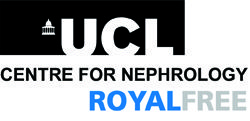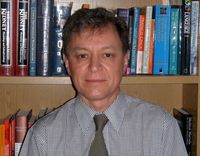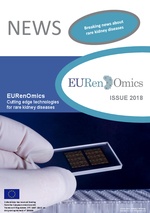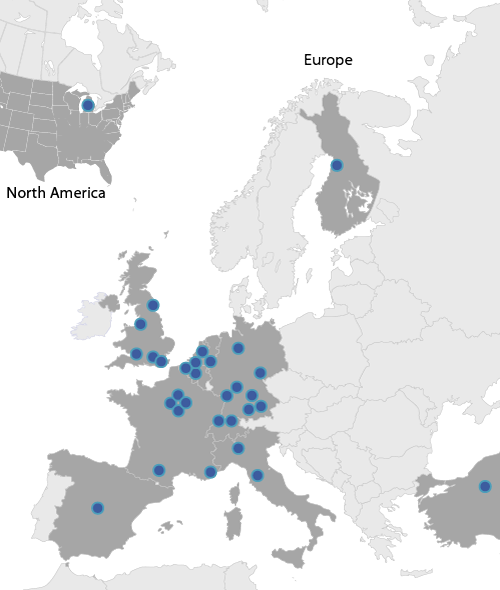University College London - Centre for Nephrology
University College London - Centre for Nephrology
Rowland Hill Street
NW3 2PF London
UK
Project Leaders
Prof. Robert J. Unwin
Professor of Nephrology & Physiology
Phone: +44 20 7472 6499![]() Contact
Contact
Prof. Robert Kleta
Potter Chair of Nephrology
Phone: +44 20 7317 7554
Fax: +44 20 7472 6476![]() Contact
Contact
Project Staff
Prof. Jasminka Godovac-Zimmermann
Professor of Protein Biochemistry
Phone: +44 20 7472 6200![]() Contact
Contact
Prof. Peter Rich
Professor of Bioenergetics
Phone: +44 20 7679 7746
Fax: +44 20 7679 7096![]() Contact
Contact
Dr. Darrell Allen
Consultant Urological Surgeon![]() Contact
Contact
Dr. Detlef Böckenhauer
Reader in Paediatric Nephrology
Phone: +44 20 7405 9200 5583![]() Contact
Contact
Simon Choong
Director, Stone Unit / Consultant Urological Surgeon
Phone: +44 20 3447 9179![]() Contact
Contact
Dr. Andrew Hall
Clinical Training Fellow/NIHR Clinical Lecturer![]() Contact
Contact
Dr. Christopher Laing
Consultant Nephrologist/Honorary Senior Lecturer![]() Contact
Contact
Dr. Shabbir Moochhala
Consultant Nephrologist![]() Contact
Contact
Dr. Daron Smith
Consultant Urological Surgeon
Phone: +44 20 3447 9179![]() Contact
Contact
Dr. Horia Stanescu
Lecturer
Phone: +44 20 7794 0500 ext 31440![]() Contact
Contact
Dr. Stephen B. Walsh
Clinical Senior Lecturer in Experimental Medicine/Honorary Consultant Nephrologist![]() Contact
Contact
Institute Presentation
The UCL Centre for Nephrology is a large academic and adult clinical renal service based at the Royal Free Hospital (RFH) in London. It is part of University College London Medical School and serves the population of north central London. UCL Medical School includes several major specialist and teaching hospitals, of which the RFH is one, but it also includes Great Ormond Street Hospital (GOSH), where the paediatric nephrology unit is located. These hospitals both have international reputations, particularly GOSH. The adult and paediatric units work closely together and have shared clinical interests and research programmes in renal tubular disease and tubular physiology and pathophysiology, as well as in renal genetics (glomerular, tubular, and cystic diseases).
Professor Kleta is a nephrologist renowned in the field of renal genetics, and he works closely with Dr Stanescu, a talented bioinformatician, and Dr Böckenhauer, an eminent paediatric nephrologist; both Professor Kleta and Dr Böckenhauer have their clinical activity at GOSH and their research laboratories at RFH.
Professor Unwin is a renal tubular physiologist and adult nephrologist; he runs a clinical service for adult renal stone (with specialised urology at University College London Hospitals and RFH – Drs Choong, Allen, and Smith) and renal tubular disease (Drs Laing, Walsh and Moochhala). Referrals to the paediatric and adult renal clinics are local and national and, in the case of GOSH, also international. Both units follow large numbers of patients with rare forms of renal disease, often familial, many as yet undefined, and some with drug-related toxicities affecting tubular function, such as HIV disease and post-chemotherapy (Dr Hall). Both services also run a joint transition clinic for adolescents.
With their consent, patients and their families are actively involved in research. Detailed clinical and biochemical phenotyping is part of the assessment of patients, in addition to access to cutting-edge genetic and bioinformatic technologies (part of UCL’s human genetics network and consortium), as well as access to various spectroscopic analytical techniques that can be applied to blood and urine, including proteomics (Professor Godovac-Zimmermann - UCL Centre for Nephrology) and mid-infrared spectroscopy (Professor Peter Rich - UCL Structural Biology).
Links:









